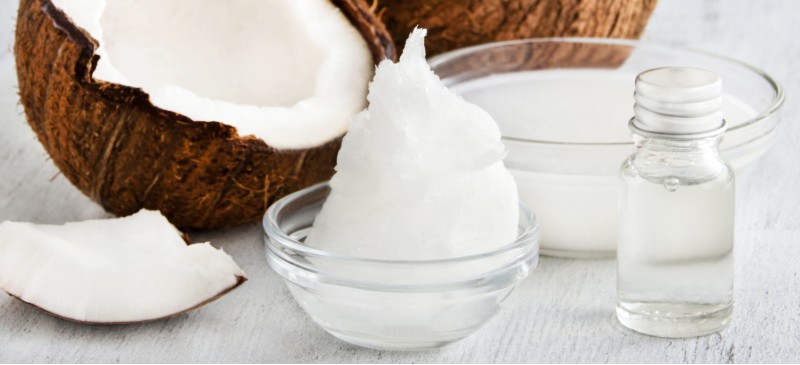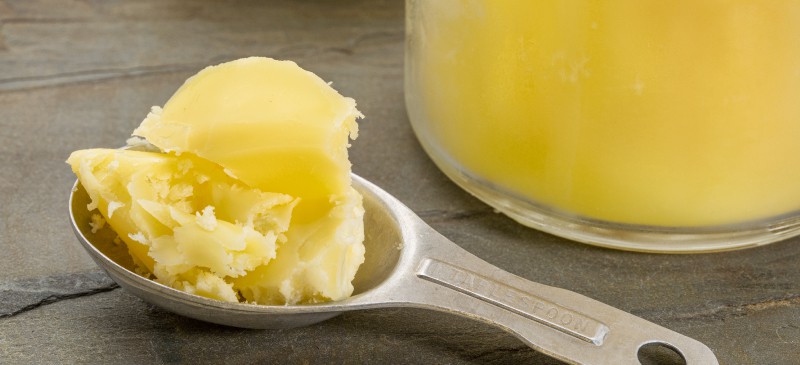
To date, there are over 1,500 studies proving coconut oil to be one of the healthiest foods on the planet. Coconut oil benefits and uses go beyond what most people realize, as coconut oil — made copra or dried coconut flesh — is a true superfood.
Research has finally uncovered the secrets to this amazing superfood: namely healthy fats called medium-chain fatty acids (MCFAs). These unique fats include:
- Caprylic acid
- Lauric acid
- Capric acid
Around 62 percent of the oils in coconut are made up of these three healthy fatty acids, and 91 percent of the fat in coconut oil is healthy saturated fat. This fat composition makes it one of the most beneficial fats on the planet, as the USDA nutrient database shows.
Most of the fats we consume take longer to digest, but MCFAs found in coconut oil provide the perfect source of energy because they only have to go through a three-step process to be turned into fuel vs. other fats that have to go through a 26-step process!
Unlike long-chain fatty acids found in plant-based oils, MCFAs are:
- Easier to digest
- Not readily stored as fat
- Antimicrobial and antifungal
- Smaller in size, allowing easier cell permeability for immediate energy
- Processed by the liver, which means that they’re immediately converted to energy instead of being stored as fat
All of this shows why this oil made from coconut copra makes for a true superfood, and it’s why coconut oil benefits are so plentiful and amazing.
Coconut Oil Benefits
According to medical research and the USDA nutrient database, coconut oil benefits the body in the following ways:
1. Proven Alzheimer’s Disease Natural Treatment
The digestion of MCFAs by the liver creates ketones that are readily accessible by the brain for energy. Ketones supply energy to the brain without the need of insulin to process glucose into energy.
Recent research has shown that the brain actually creates its own insulin to process glucose and power brain cells. As the brain of an Alzheimer’spatient loses the ability to create its own insulin, the ketones from coconut oil could create an alternate source of energy to help repair brain function. (1,2)
2. Prevents Heart Disease and High Blood Pressure
Coconut oil is high in natural saturated fats. Saturated fats not only increase the healthy cholesterol (known as HDL cholesterol) in your body, but also help convert the LDL “bad” cholesterol into good cholesterols.
By increasing the HDL in the body, it helps promote heart health and lower the risk of heart disease. Coconut oil also benefits the heart by lowering high triglycerides.
3. Treats UTI and Kidney Infection and Protects the Liver
Coconut water also helps hydrate and support the healing process. Doctors have even injected coconut water to clear up kidney stones. Coconut is a powerful superfood, which is evident given all these tremendous coconut oil benefits.
Ghee Better Than Butter

With the surge in popularity of health trends like the ketogenic diet, healthy fats have garnered a lot of attention lately. Right alongside familiar favorites like olive oil and coconut oil is ghee, a type of fat made by heating butter — ideally grass-fed butter — to boost its natural nutrient profile and flavor. Ghee is full of fat-soluble vitamins and healthy fatty acids, and ghee benefits can range from building stronger bones to enhancing weight loss.
Used for thousands of years and a staple in Ayurvedic healing practices, ghee is one of the most powerful healing foods out there. But what is ghee butter, and why should you add it to your pantry? Keep reading for everything you need to know about this super healthy fat.
What Is Ghee?
Ghee is similar to clarified butter, which is produced by heating butter to remove the milk solids and water. However, in comparing ghee vs. clarified butter, ghee is simmered longer to bring out the butter’s inherent nutty flavor and is left with a higher smoke point than butter, meaning that it can be heated to a higher temperature before it starts to smoke.
Not only that, but ghee is rich in beneficial nutrients and contains several fatty acids that are important to health. Plus, there are numerous benefits of ghee, and some of its components have been shown to do everything from boost weight loss to improve digestion and relieve inflammation.
Ghee Benefits
1. It Has a High Smoke Point
The smoke point is the temperature at which an oil begins to burn and smoke. Not only does heating a cooking fat above its smoke point put it at a greater risk of hitting its flash point and causing a fire, but it also breaks down important phytonutrients and causes the fat to oxidize and form harmful free radicals.
Unfortunately, most cooking oils with a high smoke point are less-than-stellar for your health. Canola oil, peanut oil, corn oil and soybean oil are usually genetically modified and also often partially hydrogenated to increase their stability.
Ghee, on the other hand, is an excellent choice for cooking because of its high smoke point and beneficial effects on health. The smoke point of ghee is 485 degrees Fahrenheit, which is much higher than the smoke point of butter at 350 degrees Fahrenheit. This means that you can easily use ghee for baking, sautéing and roasting without the risk of destroying the important nutrients that it contains that provide all these wonderful ghee benefits.
2. It’s Packed with Fat-Soluble Vitamins
Adding a few servings of ghee into your day is an excellent way to squeeze in some extra fat-soluble vitamins. Ghee can help boost your intake of vitamin A, vitamin E and vitamin K, all important nutrients that play a role in everything from maintaining healthy vision to keeping your skin glowing.
This can be especially crucial if you suffer from any conditions like leaky gut syndrome, IBS or Crohn’s, as your body may have difficulty absorbing these fat-soluble vitamins. Ghee benefits your health by providing a boost of these nutrients to help you meet your daily needs.
3. It’s Free of Lactose and Casein
One of the best ghee benefits is that it’s free of lactose and casein protein. Some individuals have a milk allergy, which may stem from a heightened sensitivity to casein, and others may be hypersensitive to lactose. For individuals with a casein allergy, the reaction may include swelling of lips, mouth, tongue, face or throat; hives; or congestion.
Those with a lactose intolerance have a difficult time digesting the milk sugar lactose, but symptoms are generally much less dangerous than a casein allergy. Symptoms of lactose intolerance may include bloating, flatulence, nausea, vomiting, gurgling and cramps. The majority of people who have sensitivities to either casein or lactose don’t have an issue with ghee, as these elements have been removed through skimming and straining.
4. It Contains Conjugated Linoleic Acid
Ghee is jam-packed with conjugated linoleic acid (CLA), a fatty acid associated with a long list of health benefits. Some studies have found that CLA may be effective in reducing body fat, preventing cancer formation, alleviating inflammation and even lowering blood pressure. (1, 2, 3)
Keep in mind that grass-fed dairy provides a higher concentration of this important fatty acid. (4) Opt for grass-fed ghee whenever possible, or be sure to use grass-fed butter if you’re making ghee at home.
5. It’s Loaded with Butyrate
Butyrate, or butyric acid, is a short-chain fatty acid that plays a central role in gut health. Some studies have suggested that it may help support healthy insulin levels, fight off inflammation, and provide relief for individuals suffering from conditions like Crohn’s disease and ulcerative colitis. (5, 6, 7)
This important fatty acid is also made by the gut flora when you eat fiber. As the primary source of energy for the cells in your colon, butyrate is key to promoting a healthy gut microbiome, which plays an integral role in health and disease. (8, 9)
Comments
Post a Comment